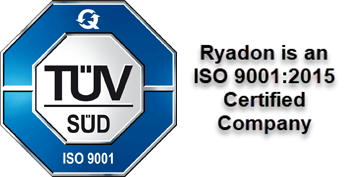Welcome to our comprehensive guide on optimizing the performance of truck, trailer, and specialty vehicles. At Ryadon, we understand the importance of maximizing the capabilities and efficiency of these vehicles for various industries. In this article, we will explore key strategies, tips, and technologies that can help you achieve superior performance and stay ahead of the competition.
Regular Maintenance: The Foundation of Performance
To ensure optimal performance, regular maintenance is paramount. By following a proactive maintenance schedule, you can prevent potential issues, extend the lifespan of your vehicles, and improve overall efficiency. Here are some essential maintenance tasks:
1. Routine Inspections
Regularly inspecting your truck, trailer, or specialty vehicle is crucial to identify any signs of wear, damage, or malfunction. This includes examining the engine, transmission, brakes, tires, suspension, and electrical systems. Addressing minor issues promptly can prevent them from escalating into major problems.
2. Fluid Checks and Replacements
Maintaining proper fluid levels and ensuring regular replacements is vital for smooth operation. This includes engine oil, coolant, transmission fluid, brake fluid, and power steering fluid. Following the manufacturer’s recommendations and using high-quality fluids is essential for optimal performance.
3. Air Filter Maintenance
Clean and replace air filters as recommended by the vehicle manufacturer. Clogged or dirty air filters can restrict airflow, leading to reduced engine performance and decreased fuel efficiency. Regular air filter maintenance helps keep your vehicle running smoothly.
Upgrades and Modifications for Enhanced Performance
While regular maintenance forms the foundation, certain upgrades and modifications can take your truck, trailer, or specialty vehicle’s performance to the next level. Here are some areas to focus on:
1. Engine Tuning and Performance Chips
Engine tuning and performance chips offer significant power gains and improved fuel efficiency. Upgrading the engine control unit (ECU) with performance software can optimize fuel mapping, ignition timing, and other parameters, resulting in enhanced overall performance.
2. Suspension Upgrades
Upgrading the suspension system can enhance stability, control, and ride comfort. Adjustable coilover kits, heavy-duty shock absorbers, and sway bars are some popular upgrades that can improve handling and overall performance, especially for specialty vehicles.
3. Aerodynamic Enhancements
Reducing drag and optimizing airflow can lead to improved fuel efficiency and overall performance. Consider installing aerodynamic enhancements such as wind deflectors, side skirts, and streamlined accessories. These modifications can make a noticeable difference, particularly during highway driving.
4. Performance Exhaust Systems
Upgrading to a high-performance exhaust system can enhance engine power, improve exhaust flow, and produce a more aggressive sound. By reducing backpressure, performance exhaust systems allow the engine to breathe more freely, resulting in increased horsepower and torque.
Cutting-Edge Technologies for Performance Optimization
In today’s technologically advanced world, several cutting-edge solutions can revolutionize the performance of your truck, trailer, or specialty vehicle. Let’s explore some of these innovative technologies:
1. Telematics and Fleet Management Systems
Telematics systems provide real-time data on various aspects of your vehicle’s performance. These systems can monitor fuel consumption, engine health, driver behavior, and much more. By analyzing the data, you can identify areas for improvement, enhance efficiency, and optimize vehicle performance.
2. Trailer Tracking and Monitoring
For businesses that rely on trailer transportation, trailer tracking and monitoring systems are invaluable. These systems offer insights into trailer location, condition, and utilization. By optimizing trailer usage and reducing downtime, you
can improve operational efficiency and maximize the performance of your trucking fleet.
3. Intelligent Fuel Management Systems
Fuel is a significant expense for trucking and transportation companies. Intelligent fuel management systems utilize advanced algorithms and sensors to optimize fuel consumption. These systems provide real-time insights into fuel usage patterns, identify inefficiencies, and recommend strategies to reduce fuel costs while maintaining performance.
4. Advanced Safety Technologies
Ensuring the safety of your drivers and vehicles is essential for maintaining optimal performance. Advanced safety technologies, such as collision avoidance systems, lane departure warnings, and adaptive cruise control, can significantly reduce the risk of accidents and enhance overall safety. By investing in these technologies, you not only protect your drivers but also improve the efficiency and longevity of your vehicles.
The Role of Driver Training and Skill Development
While technology and upgrades play a crucial role in optimizing vehicle performance, the skills and expertise of the driver are equally important. Here are some key aspects of driver training and skill development:
1. Efficient Driving Techniques
Training drivers in efficient driving techniques, such as smooth acceleration and braking, proper gear selection, and maintaining consistent speeds, can lead to substantial fuel savings and increased vehicle performance. Encouraging drivers to adopt eco-friendly driving practices can have a positive impact on both your bottom line and the environment.
2. Knowledge of Vehicle Systems
Drivers should have a solid understanding of the vehicle systems and components they operate. Providing comprehensive training on the basics of engine operation, transmission functionality, braking systems, and other critical components empowers drivers to identify potential issues early on, contributing to improved performance and reduced downtime.
3. Regular Skills Refreshers
As technology evolves and new features are introduced, it’s essential to provide regular skills refreshers to drivers. This includes training sessions on the latest safety technologies, advanced driving techniques, and equipment-specific updates. Keeping drivers up to date ensures they can leverage the full potential of their vehicles while maintaining safety and efficiency.
Conclusion
In conclusion, optimizing the performance of your truck, trailer, and specialty vehicles requires a holistic approach. By combining regular maintenance, strategic upgrades, cutting-edge technologies, and driver training, you can achieve superior performance, efficiency, and competitiveness in the industry. Remember, staying ahead of the competition requires ongoing effort and a commitment to continuous improvement. Invest in the right tools, technologies, and training, and unlock the full potential of your fleet.

